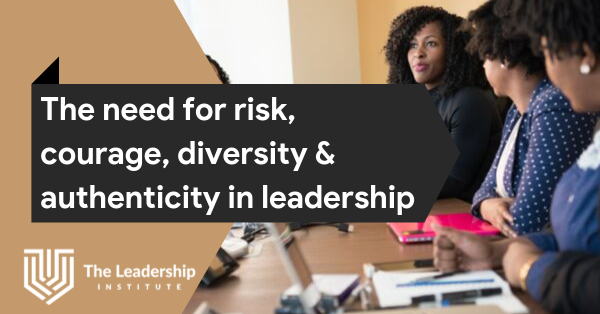By Dana Lightbody
It’s a sunny day in North Queensland, of course, and I am on holiday with my two children. This is the first trip I’ve taken solo with both of them, and I have to admit it is a lot more stressful than I was anticipating. This morning I managed to take a glorious hour away from the kids to ‘sit down’ with Suzanne Steele, the Australian MD of Adobe. By sit down, I mean that I teleconference her from my hotel room, I wouldn’t expect her to fly to the tropics just for the interview.
I’ve met Suzanne before, in Adobe’s beautiful offices in Sydney. Since we’re video-conferencing I tactically angle the camera across my messy hotel room so none of the mess is visible. I’m a woman in business and I want this other very impressive woman in business to think I’m professional.
I needn’t have worried. Suzanne is warmth personified. She’s also not using her camera, so I’m off the hook.
Suzanne herself is travelling, back to her native UK to spend time with her adult children. Her state of travel makes me feel more at ease with my current situation and I ask her about the inevitable work/life balance. “I have to say it’s easier these days because my children are all grown up and live on the other side of the world. When they were much younger it was very difficult, and I think it is very difficult for anyone with young children to balance life and work. Particularly today, life and work are the same thing. We’re 24/7. I believe that if you love the work that you do, the team that you are a part of, then you can find that balance. If you’re having fun and if you’re really passionate about it. I also ensure that I take the time to switch off my phone and be in the moment with my family and that’s really important to me.”
She goes on to add that having a supportive family is what helps her be the leader she is today. She speaks of her husband being her biggest support, her strongest mentor and her harshest critic, a relationship and a support that has grounded her for most of her career. “My husband is my biggest coach and biggest supporter and also my harshest critic. I think you have to have people around you that can help you.”
Having a strong mentor is something Suzanne credits to getting her to the top. She’s had a less than typical career. Leaving school at 16, Suzanne had no formal qualifications. She cut her teeth in a start-up whose founder and CEO remains her mentor to this day. She humbly credits him with her business acumen, “he saw something in me that I didn’t even see in myself. He really gave me a chance, taught me a lot about business, how to get things done, how to lead with passion and energy, how to get things done and how to fail. It was vital.”
Clearly the lack of formal qualifications didn’t hold Suzanne back. She moved from strength to strength, leading and motivating management teams across data, software and analytics businesses in North America, the UK and Singapore. This included senior roles at Visa Europe, CACI London and Morgan Stanley. She clearly had quite a lot of role diversity under her belt before being headhunted into her current role at Adobe.
When asked about what it took to get to the top, Suzanne admits that she took risks and indeed encourages anyone, not just women, to take risks with their career. “I am pretty quick to make decision and I use a lot of intuition. I can honestly say I have never gone into a role where I have felt this will be easy. I’ve got this.” Her openness about risk taking and the steps she took to further her career leads me to ask the topical imposter syndrome question and she laughs gently at me, “I feel if you stop feeling imposter syndrome then I might stop feeling successful… If I didn’t have imposter syndrome, I would question it. And I overcome it by asking for feedback from people.” She clarifies that while a little bit of job insecurity can be motivating and force you to become better, too much makes it problematic. “You have to build your confidence by putting yourself in situations where you will have imposter syndrome and delivering on it, then ticking that box and moving on… but I think if it’s too severe and it’s forcing you to question everything you are doing in your day-to-day job then it’s a problem.”
I bring her back to her statement of asking for feedback and ask whether she thinks ongoing feedback is important. She wholeheartedly agrees, “I overcome (fear) by asking for feedback from people. Over the years I have learned to recruit people onto my leadership team who are different to me, who think differently to me and who will actually challenge my decisions. So, I balance my risk taking by having a balanced leadership team.”
When I ask her whether it’s difficult to overcome the innate desire to gravitate to, and therefore hire people that are like oneself, she seems genuinely surprised by the question: “I don’t need lots of people around who are like me, I need to fill the gap with people who have different skills sets, who have different backgrounds and ages, I feel that the easiest way to balance my risk taking is to have that balance around the leadership table.”
All this talk about risk leads me to ask about the biggest risk she has ever taken. I’m surprised that she talks candidly about getting fired. Having been fired from a job before, I know the toll that it took on my pride and sense of self. How it made me realise how much of that sense of self was gathered from being good at my job. It’s not something I like to talk about, let alone tell complete strangers about, but Suzanne doesn’t shy away from honesty. She talks about a time in her career where she questioned her senior management about errors in the books and was instantly fired. She believes her senior management thought her too green in the role to take action, having only been in the role 10 months. Clearly the underestimated Suzanne Steele. As she tells her story it’s hard not to be impressed by the passion with which she talks about this time, how hard it was but how much it was worth it. It was worth it not because she won, but because she was eventually validated. She stuck by her values, honesty and integrity and it paid off. “Financially it was a big ask to take them to the High Court, but it was a matter of principal. I would accept being fired if I thought I was bad at my job, or that I hadn’t done what was required of me, but I was fired for being honest and so that needed to be righted and challenged.” How did she recover? “The thing that helped me pick myself back up after the 18 months it took to go to the high court? It’s the letter of apology that I have framed in my study.”
It is no surprise that Suzanne took those lessons forward into her career. Acting with honesty and integrity may have got her fired from that particular role, but it clearly didn’t stop her star from rising. She credits authenticity as the key to being a strong leader, regardless of gender.
“You can’t be authentic if you’re not honest and you don’t have good values. Authentic leadership in business is really about doing the right thing for the business, doing the right thing for your customers and your people, and actually ensuring that the last thing you are thinking about is doing the right thing for you personally. I don’t think it’s difficult, particularly if you’re in a job that you love and you’re passionate about. Doing the right thing for the business, doing the right thing for the customer and doing the right thing for the talent – that should deliver on what you need to do personally to be successful.”
And with that her assistant calls time on our interview and Suzanne has to go off to do whatever it is that CEOs need to do whilst they are travelling. I thank her for her time and leave the interview feeling inspired to be a better leader for my own people, and to do it for the right reasons.
Suzanne Steele is speaking on day two of the Women in Leadership Summit 2019.



